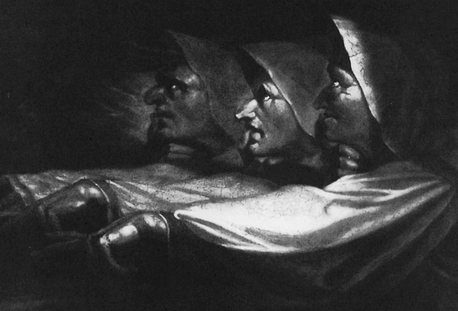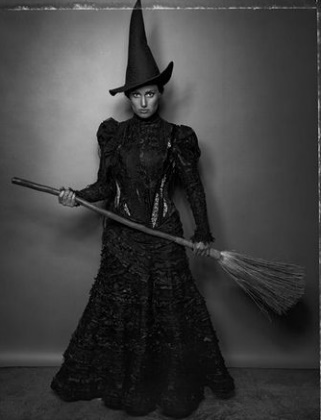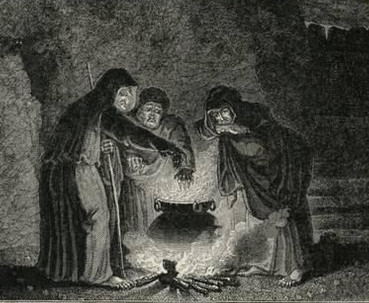Introduction
Macbeth is an interesting play to read as well as watch it being performed. Delving into Act IV Scene 1, which shows Macbeth not wanting to believe the reality of what the future holds for him. Even though the witches had revealed to him that he would be faced with problems in the future if he was to continue sitting on the throne, he ignored all that and decided to go on with his plans which Macbeth later would regret. Macbeth is informed about King Duncan’s intentions of making his son the heir. Though Macbeth declares his joy, he notes to himself that Malcolm is now standing between him and the throne and he decides to think of a plan to thwart King’s intentions. This paper presents the different performance designs that will be incorporated in Act IV, Scene 1 of Macbeth.
Directing Focus
The main objectives for the play are entertainment and education; there is a lot to learn for anyone in a leadership position from the performance. The audience needs to listen to Macbeth’s reasoning for his actions. In the scene, there are only five characters, Macbeth, the three witches, and Lennox.
Macbeth
He is a general and the thane Glamis who has been driven to have wicked thoughts by the revelation made by the three witches. Macbeth is considered a brave soldier though he lacks virtue. He is false into the temptation to kill to achieve his ambitions. Macbeth is a self-centered leader, who is good for himself and wishes bad to others. In addition, he is superstitious and believes in everything the witches tell him. The witches speak in riddles; Macbeth could not understand what they meant in most parts of the conversation.
Lennox
Lennox does not keep secrets and is a very loyal man to Macbeth. He is also a Scottish nobleman.
The three Witches
The witches are instrumental to the play; they plot malice against Macbeth through their spells, charms, and prophecies. They predict that prompt Macbeth to kill Duncan so that he can order the death of Banquo and his son. The witches take advantage of their knowledge of the future to destroy humanity.
Scenic design

The theatre that I will utilize in this act is known as the theatres in-the-round. This form of the stage gives the audience the ability to see everything that is happening on the stage. The viewers will be seated all-round the theatre; I will use this auditorium because of how the scene is acted. It has only two different acts, one of the witches and another of Macbeth and Lennox. It is then easier to stage-manage these two brief situations of action. There are no walls or roofs for this scenic design as the audience will be seated on all sides of the theatre.
For example, when the scene begins, the witches say,
Roundabout the cauldron go;
In the poison’d entrails throw.
Toad, that under cold stone
Days and nights has thirty-one
Swelter’d venom sleeping got,
Boil thou first i’ the charmed pot.
(Shakespeare)
Through the use of theatres in-the-round, the scenic design will have a pot in the middle of the theatre that will be producing smoke from the inside to symbolize the witches’ activities as depicted in the play. It will also give the audience a clear picture of what witches do during their act of witchcraft. At the point where they say “Boil thou first i’ the charmed pot” (Shakespeare), the smoke should rise from the port making a cloud at the stage.


Costume Design

Costume designs are an important aspect of any play. In this case, I will have the witches put on long black dresses that cover their feet. The outfits should have hoods that cover the hair and only leave part of their face visible to the audience. This will create a mystery for the audience as they will want to know more about the magicians. In addition, the witches hold the brooms as part of their costume, which will justify the fact that the three are sorceresses. Macbeth will have to dress as a king to show his ambitions; his clothes will have to be red, a reflection of his character. Finally, for Lennox, a gothic short and a top will do for his costume. For instance, when Lennox is conversing with Macbeth, he says “No, indeed, my lord” (Shakespeare), which perfectly matches his dressing; a gentleman.
Directing
To direct a play, the projection will also be used as a point of communication between the director and the audience. I will use a 3D backdrop of the clouds during the times that thunder is played in the background. This will help the audience visualize the actions of the witches that have led to rumbling as the clouds in the backdrop would also be moving. In addition, a dark stage will portray the characteristics of witchcraft as witches. Therefore, the stage will have to be dark with some light to show the smoke that will be coming out of the pot. For instance, when they say “Boil thou first i’ the charmed pot” (Shakespeare), a catalyst will be used to ensure that the smoke increase to show the audience the power the witches possess. In addition, a faint red light will also be flashing through the witches’ scene to bring out the use of blood by enchantresses in most cases. All these will ensure that the sorceresses’ scene shows the use of lighting. Finally, in the scene where there are Macbeth and Lennox, a spotlight will be used.
For stage direction, the sound is also an important part of storytelling; in this scene, I will use sound to show emphasis on some areas in the scene. For example, in the place where the ghost and Hamlet are acting there is needed to have a sharp and long sound. This will ensure that the audience’s attention is focused on play. This makes it easier for the audience to follow the play without any challenges that might come on the stage because of the many actors. In addition, the sound also draws the viewers’ attention to the play; it incorporated different sound trucks on different acts and scenes, which was also attention-grabbing and redirects the views to the stage just to see what new has been introduced in the play. The music also kept the play lively through which engages the viewers as well.
Conclusion
In conclusion, the performance of Macbeth Act 4 Scene 1 has been a great challenge to me and has improved my knowledge and skills in theatre directing. The light on the actors focuses on different areas and portrays the mood. I believe that by performing this Act, there is a chance for me to do even much better in the future. This experience has been a major boost to my literary skills.
Work Cited
Shakespeare, William. Macbeth. Cambridge UP, 1997.
Hischak, Thomas S. Theatre As Human Action: An Introduction to Theatre Arts. , 2019.